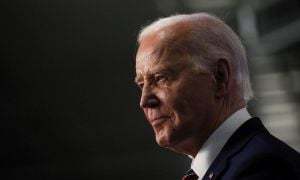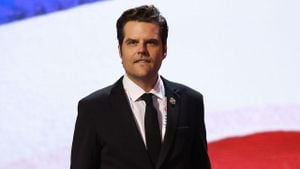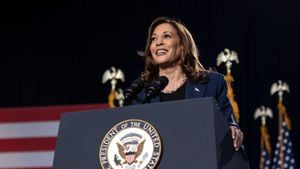With Donald Trump returning to the White House for his second term, attention is now focused on who he will appoint to key positions within his administration and the potential repercussions of these appointments. Among the most significant roles is the head of the Office of Management and Budget (OMB), which Trump indicates will be filled by Russ Vought, who has long been associated with pushing the boundaries of executive power and reshaping the federal workforce.
Russ Vought, who previously held the OMB director position during Trump's first term, is now positioned to resume this influential role. Known for his advocacy of drastic reforms, he champions the “Schedule F” policy—a controversial plan aimed at reclassifying many federal employees as political appointees. This shift could potentially allow for the mass removal of thousands of career bureaucrats, replacing them instead with supporters of Trump’s Make America Great Again agenda. Vought has directly linked this initiative to the need for reducing the federal workforce's size, stating, "Eighty percent of my time is working on the plans of what’s necessary to take control of these bureaucracies."
Vought’s tenure at the Center for Renewing America, which he founded, has been marked by radical proposals aimed at integrating evangelical Christian nationalism within governmental frameworks. His work emphasizes the importance of staffing federal agencies with individuals aligned with his interpretation of conservative values, arguing for the establishment of "ideological purity tests" to vet potential government employees. Vought has called for mobilizing right-leaning activists to embed within the administrative state.
His plans extend beyond merely revamping government personnel; he has ambitiously outlined documents to enable actions such as the “largest deportation” effort historically, indicating plans for aggressive immigration policies. Vought has suggested deploying military resources to manage civilian protests and claims to have been drafting numerous regulatory and executive orders to implement these ideas efficiently.
But Vought is not the only expected appointee raising eyebrows. Trump's picks for other top positions also reflect his administration's hardline stance on several issues. The media has spotlighted figures such as Pete Hegseth, being considered for the Secretary of Defense, whose past statements defending military actions have drawn significant criticism. Such appointments signal Trump's return to policies focused on heavy-handed methods of governance and national defense.
The groundwork laid during his first term by Trump illustrated how his administration might pursue foreign policy initiatives with greater emphasis on America’s standing against China. Analysts suggest there will be continuity with Trump’s “America First” strategy—prioritizing U.S. interests and addressing what many perceive as the growing threat of China as both an economic and military adversary.
Trump’s newly articulated foreign policy framework appears aimed at immediate competitors like China, with emphasis on militarization and increasing diplomatic engagement to counter China’s influence around the globe. With the backdrop of strategic competition, his approach suggests reshaping alliances to reinforce U.S. power worldwide.
A potential shift toward militarization has already been discussed among conservative circles, portraying the military as central to addressing domestic challenges. Vought’s previous comments hint at amplifying the role of the military not just abroad, but also on domestic soil, as seen by his mentions of utilizing military forces for law enforcement needs.
Simultaneously, Vought's plans suggest major cuts to social programs, as he and others push for extensive austerity measures. There’s talk of trimming down supportive services for vulnerable populations, significantly altering the social safety net. With the backdrop of America’s massive national debt—exceeding $30 trillion—these proposed budgetary changes could redefine the government's role in citizens' lives drastically. Vought and his associates are also pushing for interpretations of executive powers which could dismantle checks and balances traditionally upheld by Congress.
While the details of Trump's agenda for his second term remain under discussion, anticipation grows around the influence of Vought and similar appointees. There’s concern among political analysts and opposing parties about the potential consequences of these appointments, alongside the expected clashes with existing government frameworks and public opinion.
Internationally, themes of nationalism and assertions of U.S. superiority persist, especially as Trump solidifies his stance against globalist policies seen as undermining American interests. The upcoming policies under Trump’s leadership are expected to resonate beyond U.S. borders, particularly impacting relationships with allies and other major powers who may feel the pressure of his assertive policies.
The aggregated dynamics around Vought, military engagements, economic reforms, and national security pursuits echo the themes of isolationism and hostility toward perceived adversaries established during Trump’s first term. Each of these factors encapsulates what many view as the hallmark of Trump’s presidency—a focus on consolidation of power, reassertion of U.S. dominance, and attempts to redefine America’s role on the global stage.
With the echo of past policies reverberated through the halls of power, the near future promises to be both turbulent and deeply transformative under Trump’s administration. Observers, commentators, and citizens alike will be watching closely, anxious to decipher the impacts of his course corrections on governance and international diplomacy as his second term begins to take shape.



